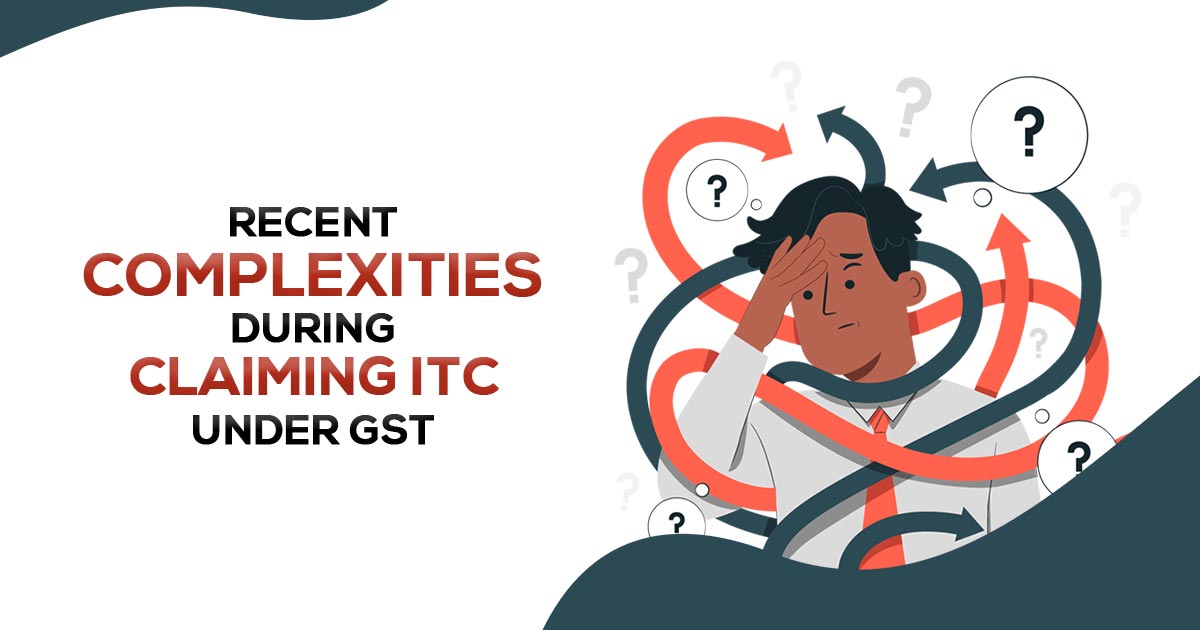
Various businesses are under pressure for the ITC claims as of engagement of large efforts. The revision of the late to the GST law would have been made by the government to tighten the claims of the ITC, via Budget 2023 the recent the has been executed.
Modification in GST ITC from Budget 2023
You would have watched and chosen the current filing regime, in which no provisional ITC claims would have been permitted. The recently issued Finance Bill 2023 would have incurred some revisions in the GST provisions to maintain the same in line with the present system of the restricted Claims of the ITC according to GSTR-2B. For example, section 54 of the CGST act on the provisional GST refunds eliminated reference to deducting any provisional ITC claimed from the Obtained ITC refund amount for the zero-rated supplies.
Claiming any input tax credit would not get permitted by the Budget 2023 against the high sea sales and the sale of warehouse goods prior to the clearance for home consumption. The same transactions come under para 8(a) of Schedule III (neither supply of goods nor services), needing no GST payment. As per that, you could not claim the Input tax credit on the inputs or input services utilised for these sales which would assure through the revision of section 17(3) of the CGST act.
Upon the Corporate Social Responsibility (CSR) expenses any GST you file shall not be qualified for ITC, as Section 17(5) of the CGST Act would get amended. The government does not report all these revisions yet that has incurred in Finance Bill 2023, however, they impact some sections of the assessee by reducing the scope of the statute ITC claims.
Furthermore, Section 16 was revised to state that if a receiver does not pay the invoice amount, including GST, to their supplier within 180 days of the invoice date, they would forfeit any GST ITC claimed together with interest under Section 50.
Recent GST ITC Changes & Its Effects
The most major change in ITC laws that has had a direct impact on the ITC claim procedure of many Indian enterprises has been the elimination of provisional ITC claims. You can claim ITC that appears as eligible on Form GSTR-2B.
These frequent changes in GST law place additional pressure on companies to keep up with the newest changes in the law and be compliant as soon as feasible.
Changes in ITC laws have increased the responsibility with which enterprises must reconcile and engage with vendors. Businesses must do reconciliations on a monthly basis and immediately notify their respective sellers of any misreporting, omissions, or delays in ITC reporting. As a result, they have taken additional procedures to safeguard ITC reporting, such as delaying GST payments while releasing invoice payments. They must also automate the process of categorizing ITC as eligible or ineligible for reporting in GSTR-3B.
How Modern Technology Claims to Get Benefit Companies After Increasing GST Complexity
Many GST-registered firms continue to reconcile data and communicate with vendors using traditional and manual techniques. With such manual methods in place, they may be unable to accomplish full ITC claims.
Technology has advanced in such a way that there are now several possibilities for data import and handling. Furthermore, while importing GST data from diverse sources such as ERP and GSTN, you must do sanity checks or execute validations at the source. It lowers or eliminates mistakes at subsequent stages of reconciliation or filing on the government’s GST portal.
Defining complex custom logic for reconciling the GSTR-2B with the books of accounts assists you in achieving greater and better-suggested matches, lowering your team’s efforts and time by a factor of ten. They can only define the logic once and keep it running till a substantial change in their business process occurs.
For ITC reporting, AI enables users to do bulk activities such as numerous choices, sorting, and dealing with multiple non-compliant suppliers. You can save time and effort by submitting as many ITC claims as possible in GSTR-2B before the GSTR-3B filing deadline.
Auto-blocking the payment of GST in the invoice to suppliers now assists firms in strategically solving working capital bottlenecks through easy cooperation with accounts payable teams.
The ITC claims gaps can get filled for Indian businesses through the use of advanced technology.